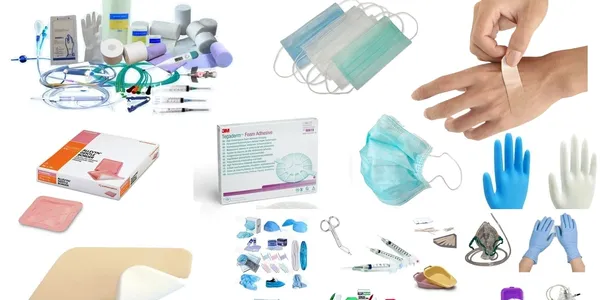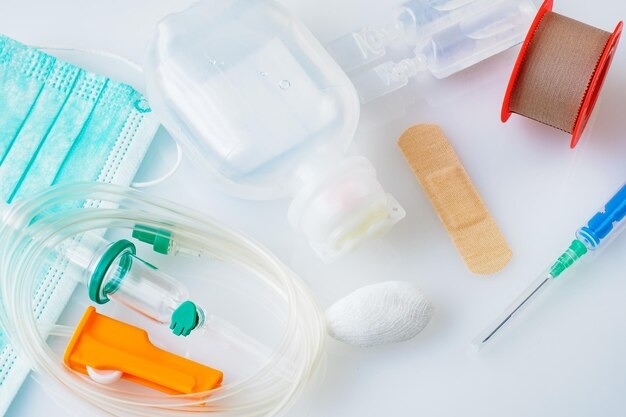Medical disposables play a vital role in healthcare settings, providing a convenient, hygienic, and cost-effective solution for various medical procedures. From gloves and masks to syringes and wound dressings, these single-use items help maintain a sterile environment, reduce the risk of cross-contamination, and ensure the safety of patients and healthcare providers. In this blog, we will explore the significance of medical disposables, their wide range of applications, and the benefits they bring to the healthcare industry.
- The Importance of Medical Disposables: These disposables are designed to be used once and then discarded, minimizing the risk of infection transmission and contamination. Here are some key reasons why they are essential in healthcare:
- Infection Control: Maintaining a sterile environment is crucial to prevent the spread of infections in healthcare settings. Medical disposables, such as gloves, masks, and gowns, act as a barrier, reducing the transmission of pathogens between patients and healthcare professionals.
- Convenience and Time Efficiency: Disposable medical products eliminate the need for extensive cleaning, sterilization, and reprocessing. This not only saves time but also ensures that healthcare providers can focus on patient care instead of dealing with complex cleaning procedures.
- Cost-Effectiveness: While initial costs may be higher compared to reusable alternatives, medical disposables eliminate the expenses associated with cleaning, sterilization, and maintenance. They also reduce the risk of equipment malfunction or damage, leading to additional costs.
- Wide Range of Medical Disposables: These disposables encompass a broad range of products that cater to various healthcare needs. Let’s explore some commonly used medical disposables and their applications:
- Gloves: Disposable gloves, usually made of latex, nitrile, or vinyl, are a fundamental component of infection control. They provide a protective barrier for healthcare professionals during examinations, surgeries, and other procedures, minimizing the risk of cross-contamination.
- Masks and Respirators: Masks and respirators are essential for respiratory protection. They help filter out airborne particles, including pathogens, providing a safeguard against respiratory infections and preventing the spread of diseases in healthcare settings.
- Syringes and Needles: Disposable syringes and needles are crucial for administering medications, vaccines, and drawing blood samples. They reduce the risk of needlestick injuries and cross-contamination, ensuring safe and accurate delivery of fluids and medications.
- Wound Dressings and Bandages: Disposable wound dressings and bandages provide a sterile covering for wounds, protecting them from external contaminants, facilitating healing, and preventing infections. They come in various forms, such as gauze pads, adhesive bandages, and hydrocolloid dressings.
- Benefits and Considerations: The use of medical disposables offers several benefits to both patients and healthcare providers. Here are a few considerations to keep in mind:
- Infection Prevention: By using single-use medical disposables, the risk of transmitting infections between patients and healthcare workers is significantly reduced. Proper disposal of these items ensures a clean and sterile environment for patient care.
- Ease of Use: Medical disposables are designed for easy and quick application, reducing preparation time for medical procedures. This allows healthcare professionals to focus on patient care and optimize workflow efficiency.
- Environmental Impact: While medical disposables offer convenience and infection control benefits, their disposal should be done responsibly to minimize environmental impact. Proper waste management and recycling initiatives can help address these concerns.
Medical disposables are indispensable tools in healthcare, providing a safe and efficient means of infection control and patient care. From gloves and masks to syringes and wound dressings, these single-use items contribute to the well-being of patients and the safety of healthcare professionals. By embracing the use of these disposables and ensuring proper disposal practices, healthcare settings can enhance safety standards, reduce the risk of infections, and promote efficient and effective healthcare delivery.


